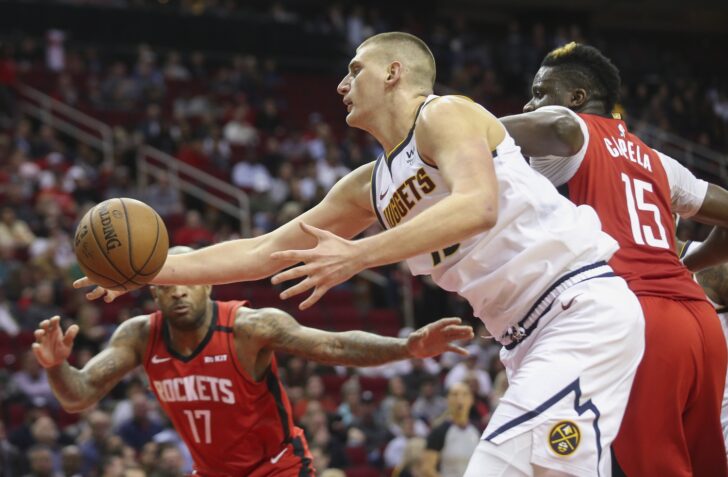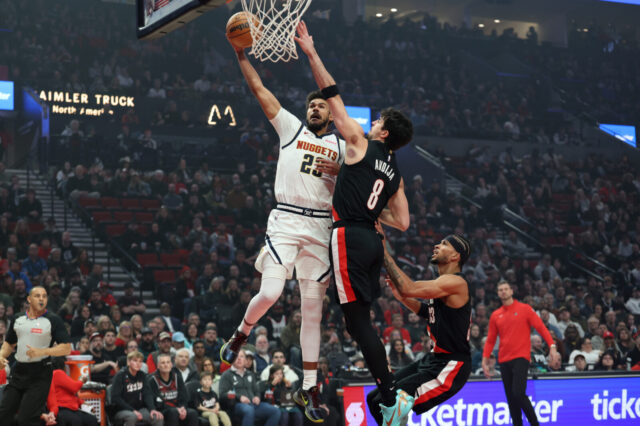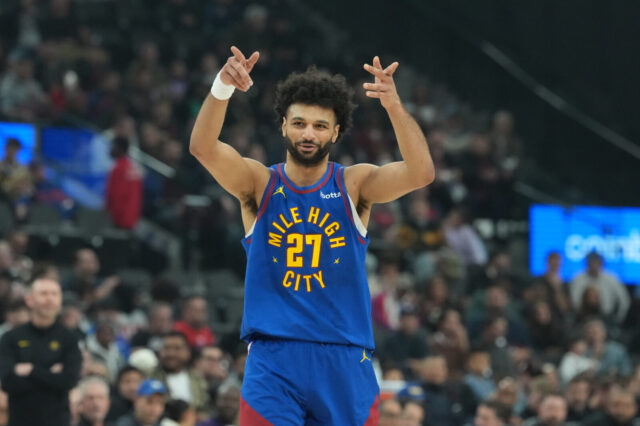Stop. Before you lose your mind, a few (obvious) acknowledgements.
Yes. The Nuggets are a much better team when healthy.
Yes. The “plan” – consisting of Nikola Jokic, Paul Millsap, Will Barton, Gary Harris and Jamal Murray – is always more effective than last night’s banged up, injury-ridden “backup plan” that was trotted out last night in Houston.
And lastly, no, I’m not saying the Nuggets had any shot last night in Houston. They didn’t.
But here’s the thing. For quite some time now, we’ve been told – and we’ve agreed – that the Denver Nuggets have one of the best benches in the entire NBA. The Nuggets are deep, deep, deep. They’re so deep in fact, it’s tough to find minutes for several extremely competent players. Michael Porter Jr., for example, would be a starter for plenty of NBA teams, but hasn’t found much floor time this season in Denver because, hey, who’s going to sit down? Malik Beasley, another example, would likely play a much more significant role on multiple teams – but not Denver, not when the starters are healthy. Either Paul Millsap or Jermai Grant must start; the other starts on the bench.
Great problems to have, right? What a luxury, to have on your bench a couple of players – if not three or four – who could start on plenty of NBA teams. That’s a talent rich roster, built with great scouting and patience.
And it’s true; when the Nuggets are healthy, boasting a starting lineup that has its sights set on the Western Conference Finals, and a bench that can run and gun just about any NBA team’s “second five” into exhaustion, Denver is built to win a ton of games. When healthy, they can. When healthy, they will.
But it’s a trap.
There were also years in which the Nuggets, even under George Karl, relied on its bench to rack up regular season wins – only to get bounced in the postseason. Only in 2009, when the Nuggets starting five (Carmelo Anthony, Chauncey Billups, Nene, Dahntay Jones and Kenyon Martin) was really and truly one of the best in the West, did the Nuggets advance past the first round of the playoffs under Karl.
There are many reasons why those Nuggets didn’t advance, but the real reason is the one that’s the simplest: The Nuggets best five weren’t as good as the opponent’s best five.
A great bench is a nice luxury in the regular season. This season, the Nuggets bench has been responsible for plenty of wins. Last night in Houston, the Rockets might have won by 40 points had it not been for the Nuggets better-than-average bench (even with injuries to bench standouts Michael Porter Jr and Mason Plumlee). All told, a very good Rockets team won by “only” 16 points at home. (As I said, the loss was eminent).
In the postseason, however, games look a lot more like the first half of last night’s game – when the Rockets relied heavily on their starters, who, by and large, led the 70-point effort in the first half en route to a 27-point halftime lead. That lead was extended to 31 by the start of the fourth.
And the point is not that the Rockets starters last night were better than the Nuggets starters last night. Of course they were. The point is, in the playoffs, it’s basically only the starters that matter. Because in the playoffs, if your “twos” are beating their “twos”, well, then in comes their “ones.” There’s no tolerance for losing leads; there’s no load management in the playoffs.
Here’s the recipe for success in the NBA playoffs: Three “star” or “close to star” caliber starters, two “very good” starters who preferably play a very specific role, one sixth man who can do one thing very well (like shooting or defense), and two guys who can provide a few minutes and not – basically – screw things up.
That’s it.
It’s not necessarily easy to assemble. But it’s not rocket science, either.
If your team doesn’t have that, or something pretty close along with someone named LeBron or Kawhi, then your team isn’t winning it.
So, as we watch the Nuggets, it’s important to realize that the only question we – or best yet, Tim Connelly – must ask, is this: Are our five better than their five?
And if we’re examining last season, the answer is “no.”
So, while the Nuggets did, in fact, improve over the offseason this past summer (with the additions of Grant and Porter, Jr.) they really only improved their already deep bench – which, as evidenced in Houston, is still nowhere near good enough to run with the Rockets (again, that’s understandable).
Now, the Nuggets young starters all possess one more year of experience, and that helps. But is it enough?
Only time will tell, but history suggests probably not. Remember, even the Golden State Warriors, who beat the Nuggets in the first round of the 2013 playoffs, lost in the first round of 2014. It wasn’t until 2015 that their dynasty too form.
Assuming Harris, Murray, and Millsap return to health relatively soon, the Nuggets will still post a nice regular season record. But the only way they’ll make noise in the playoffs is if their top five are better than whoever they’re playing.
And there’s really only two ways the Nuggets starting five can get significantly better: First, Michael Porter Jr. gets enough minutes to develop and make a major impact by April; or second, a trade.
Here’s hoping Porter Jr.’s back returns to health quickly, so he can take advantage of the minutes that have recently opened up. I wrote it already, but the injuries to the Nuggets starters are a blessing in disguise. Having a new difference maker (hint: Michael Porter Jr.) in the starting five is the only way the Nuggets will advance further than they did last season.
Because in the playoffs, it’s your five against their five.



